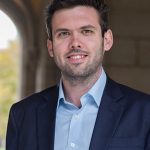Intimate Justice: A Liberal-Egalitarian Case for Compulsory Relationships Education
Project Investigator: Andrée-Anne Cormier (York University, Glendon College)
Abstract: The central aim of this project is to develop a liberal-egalitarian defense of compulsory relationships education and to identify its proper aims. The basic idea I shall investigate is that the distribution of opportunities to form and maintain meaningful intimate relationships at all stages of life is a fundamental concern of justice. The project is divided into two parts. In the first, I aim to defend the view that the liberal state has a basic obligation of justice to facilitate (a) just intimate relationships among individuals, and, more controversially, (b) a fair (and more equal) distribution of opportunities to access such relationships across different individuals and groups in society. In the second part, I plan to argue that one of the best, morally acceptable, ways for the state to satisfy those duties is by implementing relationships education programs and policies designed to (1) develop citizens’ ability and disposition to form and maintain just intimate relationships over the course of their lives, and (2) address key social barriers to a fair distribution of opportunities to access those relationships. More concretely, I anticipate that my account will support and justify the political legitimacy of a critical agenda for relationships education – focused on discussing/challenging a range of prevalent social norms and myths (e.g. about romance, friendship, beauty, and marriage) which contribute to the perpetuation of (unjust) relational and distributive inequality in the sphere of human intimacy.

Education, Parenting, and the Future of Work
Project Investigator: Tom Parr (University of Warwick)
Abstract: Many parents struggle to cope with the demands of parenting and the demands of paid employment. The upshot is that vast numbers are left poor in terms of both disposable income and free time. But, in addition to being bad for parents, this can have deleterious effects on the many children who are subsequently deprived of the educational resources (both material and emotional) necessary for a fair start in life. We can expect a series of ongoing labour market trends to increase worsen these effects even further. Crucially, however, policymakers have at their disposal a range of measures that can lower the price of parenting by reducing the costs that an individual must bear through parenting. Examples include state-funded childcare, state-funded income subsidies for parents, and a variety of workplace accommodation policies. These possibilities give rise to the following research question, around which this project focuses: How should policymakers respond to the threats and opportunities associated with current labour market trends so as to ensure that our workplaces of the future appropriately serve the educational interests of children? This project will have three outputs: an international workshop with academics from a range of disciplines interested in the project’s theme; an article that assesses the educational benefits of different kinds of childcare regimes, in the light of current labour market trends; and a chapter in which I appeal to the educational interests of children in order to defend employees’ right to know their work schedule at least one week in advance.
Workshop on “Parenting and the Future of Work,” University of Warwick, May 11-12th 2020
Funded January 2019

Pedagogies of Punishment: How and Why Should Schools Punish Students (If At All)?
Project Investigators: John Tillson (Liverpool Hope University) & Winston Thompson (Ohio State University)
Abstract: School discipline research has tended to address efficacy instead of justice and pay inadequate attention to background social conditions which are relevant to considerations of justice, such implicit bias effects, resources availability, and trade-offs between rival goods that schooling can help to realize. We propose to hold a symposium in Ohio followed by a conference in Liverpool enabling a multidisciplinary, international team of researchers, many with backgrounds in teaching, to share expertise and develop ideas that contribute towards formulating and promoting more empirically informed and normatively defensible disciplinary practices and policies in schools. At the symposium, 14 researchers will facilitate discussion around state-of-the-art papers of their choosing within their discipline. Shorter sessions will be led by individual researchers, longer sessions will be co-lead by junior and senior scholar pairings. Scholars will be encouraged to consider forming writing partnerships, but have no obligation to do so. Three months later, the team of scholars will present works in progress at a conference, receiving responses from further multidisciplinary scholars. Up to 14 papers will be allowed for, although fewer spots will be probably required. Colleagues from each host institution will attend local events as critical friends. A project web page will be updated with blog posts by and interviews with contributors, with updates about outputs and with relevant media and scholarly links. Theory and Research in Education has expressed interest in publishing a special edition containing up to ten contributions.
Publications related to this project:
Pedagogies of Punishment: The Ethics of Discipline in Education “brings together interdisciplinary authors from the fields of educational policy, early childhood education, history, political philosophy, law, and moral philosophy, to address the use of disciplinary action across varied educational contexts.”
Hand, M. (2020). On the necessity of school punishment. School Punishment article inTheory and Research in Education.
Thompson, W., Beneke, A., & Mitchell, G. (2020). Legitimate concerns: On complications of identity in school punishment. Legitimate Concerns article inTheory and Research in Education.
Warnick, B. & Scribner, C. (2020). Discipline, punishment, and the moral community of schools. Discipline article inTheory and Research in Education.
Project website & blog: www.pedagogiesofpunishment.com
Funded January 2019

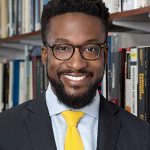
Schooling and Disability: Philosophical Perspectives on Contemporary Policy Debate
Project Investigator: Jaime Ahlberg (University of Florida)
Abstract: I am applying for funds to support the completion of a manuscript tentatively titled Schooling and Disability: Historical and Philosophical Perspectives on a Contemporary Policy Debate. The manuscript is jointly authored by me and Dr. Catherine Gavin Loss (Vanderbilt, Peabody College of Education and Human Development, Department of Leadership, Policy, and Organization). It is to be part of the History and Philosophy of Education series with the University of Chicago Press. The work to be supported includes, first, the development of my sole-authored philosophical chapters for the manuscript (“What is Disability?”; “Educational Justice for Students with Disabilities”; “The Value of Inclusion”). Second, it would enable collaborative work with my co-author that involves streamlining our historical and philosophical chapters so that they hang together as one coherent manuscript, as well as drafting together the final chapter(s) that engage policy and practice. In my contribution to the volume, I argue that in the realm of education, a conception of disability must recognize the interplay of natural and social forces in causing disability, and emphasize that a disability is in many (but not all) ways a relative property. Further, I argue for a conception of educational justice that requires understanding the different ways students flourish, as well as the ways in which the broader cultural environment can be modified (through educational intervention) to enhance students’ lives as future citizens. I centrally engage various conceptualizations of disability, work on equality of opportunity in education, and flourishing accounts of the aims of education.
Funded, January 2018

Understanding Teacher Curricular Free Expression in the United States and Canada: Limits and Possibilities
Project Investigators: Kevin McDonough (McGill University), David Waddington (Concordia University), & Bruce Maxwell (Université du Québec à Trois-Rivières)
Abstract: This project examines the current limitations on and future possibilities for curricular (i.e. in-classroom) teacher free expression in North American classrooms. It brings three perspectives to bear on these questions: 1. A regulatory perspective, which explores the framework of laws and court decisions that define teacher free expression. 2. A philosophical/normative perspective, which links debates about teacher free expression to larger debates about free speech, teachers’ professional autonomy, and academic freedom. 3. An empirical perspective, which catalogues and analyzes how in-service teachers, teacher educators, and administrators think about the question of teacher free expression, in order to map out pathways to effective conflict resolution in this area. Ultimately, this project aims to promote an understanding around teacher free expression that can serve as a basis for teacher action and advocacy. We argue that a degree of teacher free expression is critical for effective democratic classrooms, but unless teachers understand the limits on their free expression rights and why protecting those rights is essential to the work of helping young people develop democratic competencies and skills in critical reflection, it is difficult for public advocacy to make much headway. At the school level, teachers and administrators can benefit from having at their disposal a set of clear reference points that can guide them towards reasoned compromises over curricular free expression. Through an exploration of the regulations, ethical issues and educators’ professional experiences vis-à-vis curricular free speech, we aim to propose and defend just such a set of reference points.
Funded, January 2018



Intellectual Agency and Virtue Epistemology: A Montessori Perspective
Project Investigator: Patrick Frierson (Whitman College)
Abstract: This grant would fund a twelve-month sabbatical to complete a monograph with two main goals: to show how Maria Montessori’s thought can enrich contemporary virtue epistemology, and to elucidate for educators, and particularly Montessori educations, the value of philosophical reflection on the virtues for concrete pedagogical practice. By laying out Montessori’s underlying philosophy and providing illustrations of specific pedagogies for each virtue, the book will link virtue epistemology, an overlooked figure in the history of philosophy, and concrete pedagogical practice. I emphasize insights that can both transform philosophical thinking about epistemic virtues and have concrete pedagogical implications, such as how bodily capacities and unconscious mental processes play essential roles in intellectual development and how a broadly Nietzschean “courage” of standing up for one’s own insights provides a counter-weight to intellectual humility and highlights creativity as active intellectual remaking rather than merely receptive understanding. The overall result will be a monograph entitled Intellectual Agency and Virtue Epistemology: A Montessori Perspective (to be published by Bloomsbury) that lays out Montessori’s account of intellectual virtues in general and then details specific virtues of character, physical dexterity, sensory acuity, intellectual love, patience, humility, and courage.
Funded, January 2018

Political Authority and the Aims of Higher Education
Project Investigator: Christopher Martin (The University of British Columbia)
Abstract: When is the exercise of political authority over higher education legitimate, and what goods should this authority be aiming to secure? Much analysis of the state-higher education relationship is mired in disagreements over the extent to which it is appropriate for the state to direct higher education institutions in order to achieve certain moral, economic and political ends. Yet, none of these works consider the possibility that legitimate political authority over higher education lies in ensuring higher education institutions realize aims intrinsic to their democratic role. This may require, for example, understanding the exercise of political authority over higher education, less in terms of external interference, and more in terms of ensuring that institutions and their citizens comply with the values and aims of higher education in a liberal democracy. The proposed project will articulate and defend an account of political authority over higher education. In particular, the project focus on the argument that state political authority over higher education systems should be grounded in its ability to secure aims argued to be intrinsic to higher education’s democratic function. It will then detail the relationship between this authority and liberal democratic values such as personal autonomy and equality. Finally, the project will apply this conception of authority to policy issues such as place of higher education in markets, the political autonomy of universities, and role (and limits) of higher education in serving particular social, economic and political ends.
Funded, January 2018
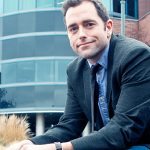
Philosophy and Habit
Project Investigators: Jennifer Rothschild (University of Florida) & Will Small (University of Illinois at Chicago)
Abstract: TMoral education depends upon not only the development of our rational (critical, reflective) faculties, but also on our non-rational upbringing. The latter has to do with the formation of our character dispositions to act well, dispositions philosophers often call ‘habits’, formed by a process we call ‘habituation.’ There seems, however, to be very little agreement about what habit actually is or how it functions in the bringing about of good action. More troubling still, to the extent a consensus is emerging, that consensus seems to be focused on an impoverished, behavioral model of human being and human action. In this project, we aim to work toward a rich, humanistic understanding of habit and its place in moral education, an understanding which accepts habitual action as non-rational action without reducing it to mere behavior. To accomplish this aim, we propose two academic events designed to initiate productive conversation among scholars from diverse philosophical specialties, scholars who are already working separately on pieces of this project and could contribute meaningfully to a project with a larger scope.
Project website: philosophyandhabit.weebly.com
Funded January 2018


Debating Religious Schooling
Project Investigators: Victor M. Muniz-Fraticelli (McGill University) and Daniel M. Weinstock (McGill University)
Abstract: This proposal examines whether denominational religious schooling is morally and politically permissible within secular liberal democracy. It discusses this question through a debate within the liberal tradition, between two principal investigators (PIs) who are both committed to liberal, democratic, and pluralist principles, but who nonetheless differ on the extent to which these principles permit or encourage denominational religious schooling in primary, secondary, and post-secondary education. The PIs anticipate that the debate over the place of denominational religious schooling in liberal democracy will follow three principal lines of argument: (1) the right of the child to an “open future”, to develop critical capacities to make autonomous moral and religious choices throughout their life, and the countervailing right of parents to direct the child’s religious formation in a certain direction; (2) the claims of religious communities to sustain and reproduce themselves, and the countervailing claims of the general society, represented by the state, to foster social solidarity and educate children to be good citizens; (3) the effect that a system of (presumably private) denominational religious schooling, offered alongside a system of public education, might have on fair equality of opportunity, both for economically disadvantages students and for members of marginalized minorities. The goal of the project is to produce a co-authored book manuscript for publication in a series such as “Debating Ethics” (Oxford University Press) or “For and Against” (Cambridge University Press).
Funded January 2017
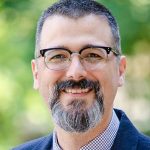
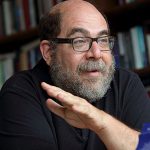
The Good University: Excellence and Ethics in the Pursuit of Inquiry
Project Investigator: Rebecca Taylor (Emory University)
Abstract: As access to higher education expands, tuitions rise, and student activism gains visibility and media attention, public concern over the aims of colleges and universities is also increasing. Institutions are being called to advance what often appear to be conflicting goals: to provide safe spaces for all students and to protect freedom of expression; to build more inclusive communities of students, faculty, and staff and to prioritize the pursuit of inquiry above all else. Demands for inclusion have been particularly contentious, with critics arguing that inclusivity threatens the quality of inquiry. This project takes a social virtue epistemological approach to exploring the aims of higher education institutions and to justifying inclusion. I begin with the assumption that one central aim of higher education institutions is to engage in inquiry in order to advance knowledge and understanding. I, then, ask: How is the aim of pursuing inquiry understood both philosophically and practically by four-year colleges and universities? Given the intellectual aims of the university, as well as the social embeddedness of the pursuit of these aims, are particular virtues vital both for epistemic success and epistemic justice? How should institutions embody these virtues in their structures, policies, and practices? I aim to defend a robust conception of epistemic inclusion (and associated virtues) that has implications not only for who has access to the epistemic goods produced by colleges and universities, but also for policies and programs that impact campus climate and institutional structures that support epistemic justice.
Funded, January 2017

Transformative Experiences in Public Education
Project Investigator: Rosa Terlazzo (Kansas State University)
Abstract: In the proposed project, I will investigate the repercussions of childhood transformative experience for public education. In short, if alternative transformative experiences affect a person’s prudential good in differential ways, and if in childhood one must choose between significant and irrevocable transformations, then adults have an obligation to vulnerable children to choose the transformations they undergo with an eye to their prudential good. In this project I will develop an action-guiding theory that can direct those judgments in the context of public education. Action guidance for public education will be an important complement to action guidance for parents, given both the extensive amount of time that children spend in public schools and the opportunity that public schools provide to reach children whose parents may not fulfill their own relevant obligations. I propose using an informed desire account of well-being, for four reasons. First, informed-desire accounts are better suited than plausible contenders for use in public education, insofar as the action guidance they give both coheres with political liberal commitments and avoids counterintuitive results. Second, informed-desire accounts are well-suited to providing a route for approximating the post-transformation preferences of children. Third, they justify the development of concrete skills of critical reflection, since they are necessary to ensure children’s ability to approximate post-transformation preferences. And fourth, they justify childhood exposure to a diverse range of life options since this is necessary to ensure that children do not become irrevocably transformed before they have the skills to approximate their own informed post-transformation preferences.
Funded, January 2017

Hope in Democracy and Education
Project Investigator: Sarah Stitzlein (University of Cincinnati)
Abstract: What ought I hope for? This ethical question guides our pursuit of the good life and its answer is often shaped by our educational experiences. I will examine how addressing this ethical question in the social and political context of both democracy and education suggests not only particular content of what we ought to hope for, but also an enriched understanding of how we hope together. I will argue that such shared work is more fruitful and just than mere independent wishes, optimism, or—increasingly popular in education circles—grit. I begin with a pragmatist account of hope as a set of habits that support a disposition toward possibility and change for the betterment of oneself and others. I extent that account of hope into explicitly ethical and political realms by considering the role hope plays in democratic life and how hope might be taught in ways similar to a democratic virtue. This includes considering the ways in which cultivating hope in schools might provide us a shared identity with our fellow citizens. I intend to examine the particular shared hopes related to justice and liberty that may be at the heart of vibrant democracy. Underlying this exploration is a larger question concerning whether or not we need shared hopes in order for democracy to flourish. In sum, this project will move from how we hope together to what we hope together and examine how those shared hopes and hoping shape our identity and our work together in democracy.
Publications related to this project:
Stitzlein, S.M. (2018). Hoping and Democracy. Contemporary Pragmatism, 15(2), 228-250.
Stitzlein, S.M. (2018). Teaching for hope in the era of grit. Teachers College Record, 120(3), 1-28.
Stitzlein, S.M. (Book in preparation). Pragmatist hope. In T. Stahl & C. Bloser (Eds.), The moral psychology of hope. Lanham, MD: Rowman & Littlefield.
Stitzelein, S.M. (In press). Learning how to hope: Reviving democracy through our schools and civil society. Oxford: Oxford University Press.
Funded, January 2017

Meeting our Standards for Educational Justice: Making the Most of the Evidence
Project Investigator: Nancy Cartwright (University of California San Diego/Durham University)
Abstract: Recent work on educational justice observes that the U.S. has shifted from conceiving equal educational opportunities as equal resources, or inputs, for all students to calling for adequacy standards, a threshold level of outcomes that the state must ensure all students reach. Though many view Common Core as an improved set of outcomes to aim for, they will only lead to greater educational justice if those outcomes are actually achieved. Unfortunately, many schools nation-wide consistently fail to meet standards, including Common Core. Educational justice requires more than a new set of standards. It requires support for educators so they are able to assist students in meeting them. To this end, there has been a significant push to incorporate scientific evidence into deliberation about educational practices. This should lead to improvements and a more just distribution of outcomes. Unfortunately, evidence-based policy in education has not resulted in the improvements hoped for. We aim to provide tools that educators can use to make the most of evidence about what works in education. Evidence from RCTs and other studies about what has worked elsewhere is only a starting point for estimating whether a policy/practice will work here, for this class. Our goal is to investigate kinds of evidence that may help in making reliable predictions about what will work in particular local contexts. We aim for a catalog of evidence types that is both well-grounded and readily intelligible to educators deliberating about what to do in their setting.
Funded, April 2016

Big Data and Education: Ethical and Moral Challenges
Project Investigators: Tammy Harel Ben-Shahar (University of Haifa) and Sigal Ben-Porath (University of Pennsylvania)
Abstract: Developments in technology have brought an “explosion of data” into education. As a side effect of the use of educational technologies in schools, a vast amount of information about students is being generated and logged. Mining these databases and analyzing them offers an opportunity to gain new understandings about learning and to guide educational decision making on every level: individualized tasks for students; courses and school placement; and policy decisions. These dramatic changes hold encouraging promises, however significant moral challenges also follow. We propose to organize a workshop that will bring together a group of philosophers who are interested in the moral and ethical aspects of the Big Data revolution in education, as well as scholars and experts in information and communication technologies and their application for education. Authors of about 10 papers, written especially for the meeting will be invited to the workshop, planned to take place in the spring of 2017 in Haifa, Israel, a hub of innovation and research in this emergent field. Each paper will be paired with a commentator. Possible topics include: Students’ privacy and data protection; commercialization of student data; epistemic aspects of algorithmic decision-making and discrimination and distributive justice. As these pressing issues have yet to be addressed systematically by education philosophers, we think it would be suitable to jointly publish the papers presented at the workshop in a special issue of a prominent journal.
Publications related to this project:
Ben-Porath, S. & Harel Ben Shahar, T. (2017). Introduction: Big data and education: Ethical and moral challenges. Theory and Research in Education (15)3, 243-248.
Funded April 2016
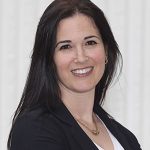

Deliberating the ethics of “college affordability” in 21st Century America
Project Investigators: Nancy Kendall (UW-Madison) and Matthew Wolfgram (UW-Madison)
Abstract: This project will bring philosophers of education into conversation with empirical data that reveals the real-world consequences of current higher education policies and practices. Based on this engagement, the project will then produce a new book that includes innovative learning materials and activities to support deliberation by education and policy professionals and by the general public on the ethics of higher education. More specifically, the project consists of three broad phases. First, based on an 18-month study of four public universities in one Midwestern state, the co-PIs will create ethnographic case studies that illuminate key ethical conundrums related to higher education access, institutional practices and students’ educational experiences, and educational outcomes and accountability. Second, participating philosophers of education will come together to engage with and deliberate about these case studies, employing the philosophical tools and approaches that they feel can best help illuminate the foundational questions posed by these real-world problems. Finally, the philosophers will write responses to the case studies, which we will collect together into an edited volume, providing new lenses through which readers can understand and deliberate over the ethical implications of current higher education practices. The book and associated materials will be widely disseminated, with particular materials targeting higher education scholars, practitioners, policymakers, and students.
Publications related to this project:
Kendall, N., Goerisch, D., Kim, E., Vernon, F., & Wolfgram, M. (2019). The true costs of college. Palgrave Pivot, under contract for publication in Fall 2019.
Wolfgram, M. & Kendall, N. (Manuscript in preparation). Piling on the stress: Higher education and social mobility under conditions of advanced inequality.
Funded April 2016


Refusing Public Education: Understanding Rights and Values in the Opt-Out Movement
Project Investigators: Terri Wilson (University of Colorado Boulder) and Michele Moses (University of Colorado Boulder)
Abstract: Through widespread “opt-out” efforts this past year, parent activists have pressured school districts, states, and the federal government to reconsider the extent and limits of state-mandated assessments. Other critics—including prominent civil rights groups—argue opt-out efforts undermine the broader public value of collecting high quality assessment data for all students. In these ways, this new opt-out movement raises longstanding philosophical questions about the proper scope of state and family authority over the provision of education. To what extent should parents be able to refuse educational approaches that challenge their values, beliefs, or ethical convictions? How should these rights be balanced against public aims for education, including concerns of equal opportunity? Recent efforts to opt-out of testing represent a unique front in these longstanding debates. Our project explores this new context through three philosophical lines of inquiry: (1) what values and claims do parents employ in opting their children out of standardized assessments? (2) In what ways, if at all, do parents’ efforts to opt their children out of school assessments differ from refusing other dimensions of public education (e.g., curricula, activities, or school itself)? (3) In what ways do the rights of parents to refuse state assessments conflict with public goals for education? Our project explores potential conflicts and distinctions between these claims, with the goal of posing justifiable limitations on refusing different dimensions of public education. We also anticipate on developing different public engagement materials to productively frame community conversations and decision-making around “opting-out” of public education.
Funded January 2016
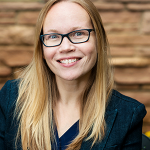
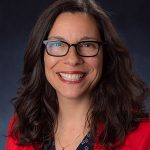
The Moral Challenge of the Educational Arms Race
Project Investigator: Daniel Halliday (University of Melbourne)
Abstract: K-12 education needs to achieve a balance between two broad objectives. Schools need to sort students by academic ability, acting as ‘gatekeepers’ for places in higher education and coveted jobs. Just as important, schooling needs to prepare children to flourish as adults, through civic education, exposure to a diverse peer group, and other forms of basically non-competitive forms of education. It would be morally questionable to allow the pursuit of either goal to become suppressed by the other. However, this balance has become undermined by a rise in educational competition that continues to escalate. This can be traced to a mixture of government policies favouring increased measurement of academic performance, and markets in supplementary education affordable to middle-income parents. This has given rise to an educational arms race, now entrenched in recently industrialized nations, such as South Korea, and spreading to other developed countries. There are multiple philosophical questions associated with understanding and responding to the educational arms race. Any descriptive account needs to examine the way in which competition in education represents a collective action problem and the way in which education is a complex positional good. Further progress towards a solution requires an appropriately moralized account of what makes the educational arms race ‘excessive’ both in terms of child and family wellbeing, the exploitative nature of markets in positional goods, and its distorting effects on education itself. Building on existing work by the principal researcher, this study will make further progress in grappling with these questions.
Publications related to this project:
Clayton, M. & Halliday, D. (2017). Big data and the liberal conception of education. Theory & Research in Education, 15(3), 290-305.
Funded, January 2016
